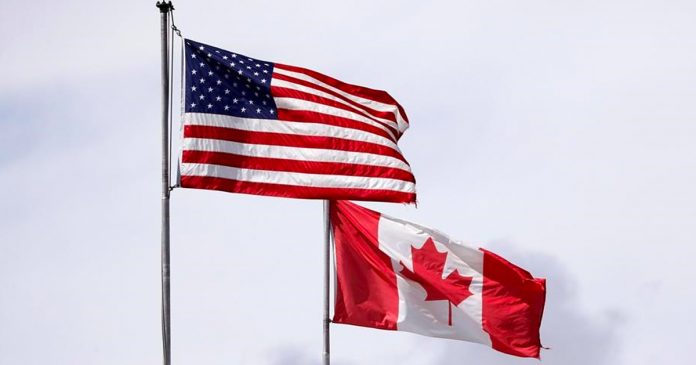Canada could be headed for another heated trade dispute with its largest trading partner should the Liberal government impose a digital services tax, warned US Ambassador to Canada David Cohen.
It’s been nearly three years since Canada’s last economic showdown with the US. Both countries were involved in a back and forth trade war over former president Donald Trump’s decision to impose aluminum duties on Canadian goods.
Back then, Deputy Prime Minister Chrystia Freeland responded with $2.7 billion in retaliatory tariffs on American products.
This time, however, the lingering trade dispute will be largely Prime Minister Justin Trudeau’s doing as his government refuses to budge on the prospect of a service tax for big tech firms like Meta, Google and others.
According to Cohen, Canada has failed to heed several warnings from US Trade Representative Katherine Tai about a potential trade conflict.
“(Our) statement was direct and clear and strong that if Canada decides to proceed alone, you leave the United States with no choice but to take retaliatory measures in the trade context, potentially in the digital trade context, in order to respond to that,” Cohen told the National Post.
The tax would force companies to pay out an estimated $1 billion to the Canadian government. Canada is the outlier among other Organisation for Economic Co-operation and Development (OECD) partners, who have put off imposing such a tax while negotiations on the OECD/G20 Inclusive Framework take place.
Instead, Freeland says unless international talks set firm dates for an agreement, Canada will proceed with the Digital Services Tax as early as 2024.
“When you look at the countries that do not agree with that position, they are not countries that you would normally think Canada wants to be a part of. They are a combination of autocracies and Third World countries,” said Cohen.
“I’m a glass-half-full-kind of guy. I do believe in civility and am optimistic that if you treat people well and make your case in a compelling fashion, then in the end you will work things out.”
Those countries include Russia, Belarus, Pakistan and Sri Lanka.
Earlier this month, Ambassador Kai raised the prospect of the tax during a meeting with Liberal International Trade Minister Mary Ng, calling on the Canadian government to wait until the OECD agrees upon a common framework.
“Ambassador Tai underscored the need for Canada to fully meet its USMCA commitments, including on home shopping. In addition, she urged Canada to refrain from imposing a digital services tax while the OECD process continues this year,” a readout from her office on the meeting stated.

